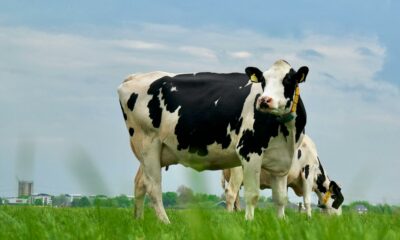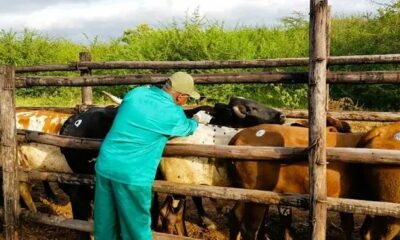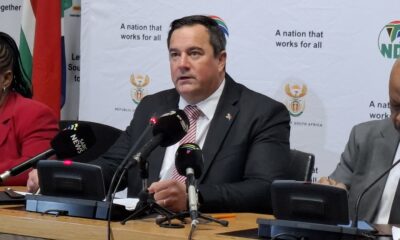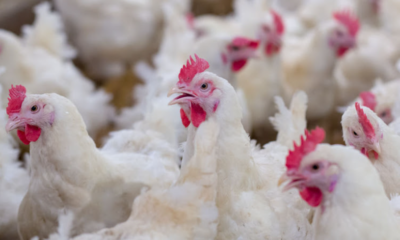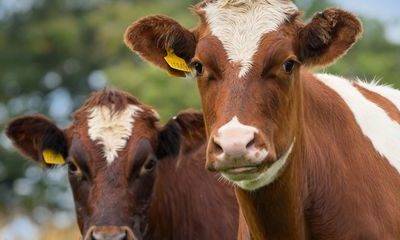News
Avian Flu Fallout: Why South Africa’s Poultry Industry Remains on Edge Despite Brazil’s Clean Bill of Health
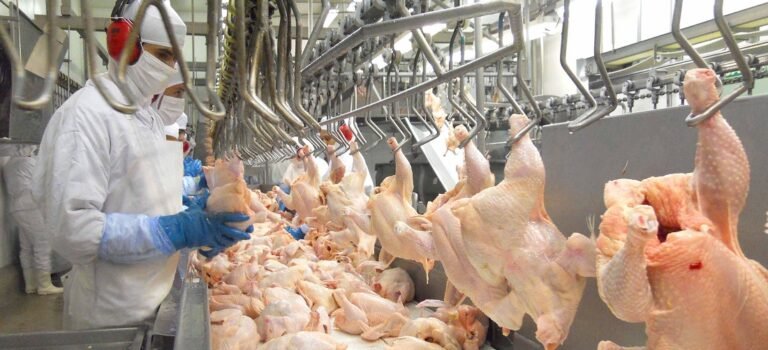
MDM shortages, conflicting protocols, and rising concerns over U.S. imports keep South African producers in limbo.
South Africa’s poultry industry should be breathing a sigh of relief after Brazil’s declaration this week that it is officially free of avian flu. Instead, it’s holding its breath.
Though the Department of Agriculture has partially lifted its ban on poultry imports from Brazil—after the outbreak was reportedly contained to a single state, meat processors, farmers, and industry leaders are warning that the worst may not be over.
From frozen imports stuck in bureaucratic limbo to growing fears about the United States’ bird flu status, the poultry sector finds itself navigating a maze of diplomatic standoffs, food safety concerns, and real-world production halts.
Factories Silent, Stock Depleted
At the heart of the crisis is Mechanically Deboned Meat (MDM), a low-cost, high-protein ingredient widely used in processed meats like viennas and polony.
According to Gordon Nicoll, chairperson of the South African Meat Producers Association (SAMPA), local factories are already running dry.
“Some of our processors had to lay off staff because factories were silent,” he said. “Even if shipments leave Brazil today, MDM may only arrive by August. We’re talking about a three-month production freeze in some cases, an impossible burden for most manufacturers.”
The cause? An impasse between Brazilian authorities and South Africa’s Department of Agriculture over the wording of import certificates. Brazil refuses to sign off on South Africa’s documentation as-is, effectively blocking MDM shipments from arriving, despite the partial ban lift.
Saai: Brazil’s Clearance a Mixed Blessing
Francois Rossouw, CEO of the Southern African Agri Initiative (Saai), welcomed Brazil’s declaration, but with caution.
“This is a double-edged sword,” he said. “Sure, it could drive down prices for consumers through increased competition. But it also puts local poultry farmers in a bind—they’re now competing with imports while still dealing with the impact of last year’s bird flu outbreak here.”
Rossouw insists that South Africa must rigorously assess Brazil’s biosecurity and disease controls before moving forward with a full import resumption.
SAPO’s Breitenbach Slams U.S. Self-Policing
While Brazilian imports dominate current headlines, Izaak Breitenbach of the South African Poultry Association (SAPO) has raised an even more pressing red flag: the United States’ ability to self-determine its export status.
Breitenbach says the Department of Agriculture has allowed the U.S. to “self-impose and self-lift” bird flu restrictions, a practice he calls a conflict of interest with dangerous consequences.
“Bird flu has hit 27 U.S. states that are currently banned from exporting here,” he warned. “Letting them decide when they’re clean, instead of our department making the call, is reckless. It puts us at serious risk of re-importing the disease that already wiped out 30% of our long-living chicken flock and cost the industry R9.5 billion in 2023.”
Breitenbach is calling for immediate reversal of this concession and a return to state-led disease verification protocols.
Government Responds: “We Call the Shots”
In response to the backlash, Dipepeneneng Serage, Deputy Director-General for Agricultural Production and Biosecurity, insisted the state remains in control.
“We partially lifted the ban only after we received sanitary assurances that the outbreak in Brazil was confined,” Serage said. “The country with the outbreak doesn’t dictate the terms. For us, this is about biosecurity, not diplomacy.”
That said, the bureaucratic tug-of-war with Brazil continues to paralyze key poultry imports, even as shelves and production lines grow emptier by the week.
The Bigger Picture: Industry Caught Between Outbreaks and Bureaucracy
For South Africa’s poultry sector, this is a high-stakes balancing act. On one hand, it needs affordable MDM imports to keep factories running and products affordable. On the other, it must shield itself from re-infection after a brutal year of outbreaks.
Caught in the middle are consumers, who may face higher prices or empty shelves, and factory workers, already feeling the sting of layoffs.
As the crisis unfolds, producers are urging the government to prioritise local food security while upholding firm biosecurity rules.
The poultry sector isn’t just asking for clarity, it’s demanding urgency, transparency, and local protection in the face of global uncertainty.
Are you a consumer or producer affected by the MDM shortage or poultry import restrictions? Share your experience on social media with the hashtag #PoultryCrisisSA or email your stories to your local agricultural body.
{Source: IOL}
Follow Joburg ETC on Facebook, Twitter , TikTok and Instagram
For more News in Johannesburg, visit joburgetc.com

